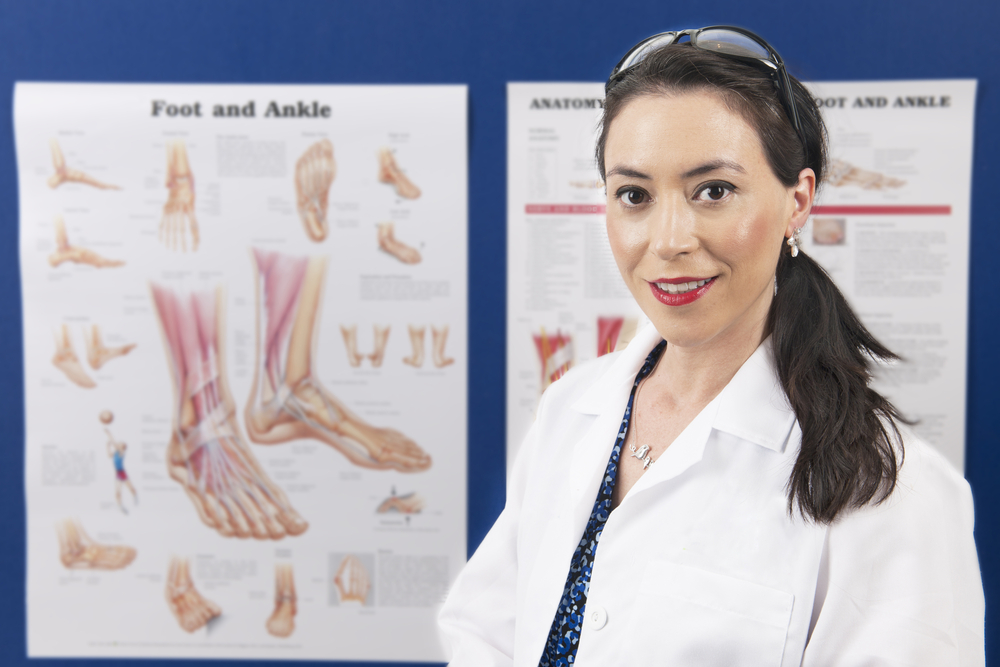
Do Podiatrists Have Areas Of Specialty They Focus On?
Do your feet hurt but you don’t really know why? If so, then you need to go and see a podiatrist. Even if you don’t have pain, it is a good idea to periodically have your feet checked to avoid any underlying foot problems that could cause problems in the future. But what is a podiatrist and what can they do for you?
Basically, a podiatrist is a foot doctor with the letters DPM behind their name which stands for ‘Doctor of Podiatric Medicine’. Generally, podiatrists are medical professionals who treat common foot, ankle, and lower leg problems. They also care for your feet by safely removing hard skin and clipping your toenails correctly. Do you have a specific problem with your feet that requires more than just general care? Then you may need to consult a podiatrist that specialises in that particular area of concern.
What is a Podiatrist and What Do They Do?
After extensive education and training, podiatrists receive a doctorate degree from an accredited Institution of Podiatric Medicine. Their education includes extensive knowledge of human physiology and anatomy and their training is concentrated on treating the feet and lower extremities of the body. During their residency training, they acquire hands-on experience in healthcare clinics and hospitals.
After completion of this training, they are required to pass a series of board certification exams before they can become licensed podiatrists and are allowed to use the letters DPM after their name. After general education and training in podiatry, many podiatrists may choose to specialise in one or more specific areas of foot medicine in which they have a particular interest.
When Should You Consult a Podiatrist?
If you are experiencing any pain, swelling, numbness, or other forms of discomfort in your feet you should see a podiatrist who will examine your feet and recommend treatment. Podiatrists are able to diagnose and treat a wide range of medical conditions related to the feet and lower extremities of the legs including:
- Injuries such as sprains, fractures, and broken bones
- Foot pain and inflammation caused by conditions such as gout, arthritis, and rheumatoid arthritis
- Structural foot abnormalities such as flat feet, high arches, and hammertoe
- Heel pain caused by plantar fasciitis
- Skin abnormalities such as athlete’s foot, plantar dermatosis, warts, and corns
- Nail conditions such as ingrown toenails and infections

Areas of Specialty Podiatrists Focus On
Within the field of podiatry, there is a wide range of specialty areas a podiatrist can focus on including surgery, sports medicine, orthopedics, etc.
Podiatric Surgery
A Podiatric Surgeon is board certified and has passed several specialist exams in surgery for foot injuries and conditions. They are licensed to perform surgery and must renew their licenses every year. They are also required to keep up to date with the latest training techniques and attend yearly seminars on podiatry. Podiatric surgeons can perform the following surgical procedures:
- Set broken bones
- Surgically treat torn or inflamed ligaments and tendons
- Correct structural abnormalities
- Debridement of infected, damaged, or dead tissue
- Surgical removal of bunions, tumours, and bone spurs
Other specialties in podiatric medicine include:
- Orthotics
- Diabetes
- Pediatric Care
- Dermatology
- Geriatric Care
- Reconstructive Surgery
- Circulatory Conditions of the Feet
- Neurological Conditions of the Feet
- Inflammatory and Autoimmune Conditions of the Feet
Treatments
Depending on the severity of the condition, once a diagnosis has been made a podiatrist may work with other specialists or involve an entire healthcare team to treat a patient. Some of the treatments recommended may include:
- The setting of fractured bones
- Prescribed medication such as antibiotics, antifungals, and pain medication
- Injections such as cortisone, corticosteroids, and other joint pain-relieving injections
- Joint Aspiration – the removal of fluid from spaces around joints
- Recommending corrective footwear, orthotics, and devices such as braces and insoles
Podiatrists are qualified to treat a variety of general foot conditions and many choose to focus on a specialised area of podiatry. They can assist patients in looking after the general health of their feet to prevent any problems from occurring or specialise in the treatment of specific conditions and abnormalities. It is a good idea to visit a podiatrist occasionally even if you do not experience any pain or do not have a specific foot condition to ensure that your feet are healthy.
Upwell Health Collective offers a comprehensive and uniquely designed treatment plan for each of our patients. Please call us at (03) 8849 9096 to schedule an appointment with a podiatrist.
